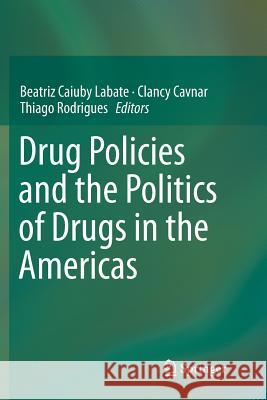Drug Policies and the Politics of Drugs in the Americas » książka
topmenu
Drug Policies and the Politics of Drugs in the Americas
ISBN-13: 9783319804859 / Angielski / Miękka / 2018 / 265 str.
Kategorie:
Kategorie BISAC:
Wydawca:
Springer
Język:
Angielski
ISBN-13:
9783319804859
Rok wydania:
2018
Wydanie:
Softcover Repri
Ilość stron:
265
Waga:
0.40 kg
Wymiary:
23.39 x 15.6 x 1.52
Oprawa:
Miękka
Wolumenów:
01
Dodatkowe informacje:
Wydanie ilustrowane











